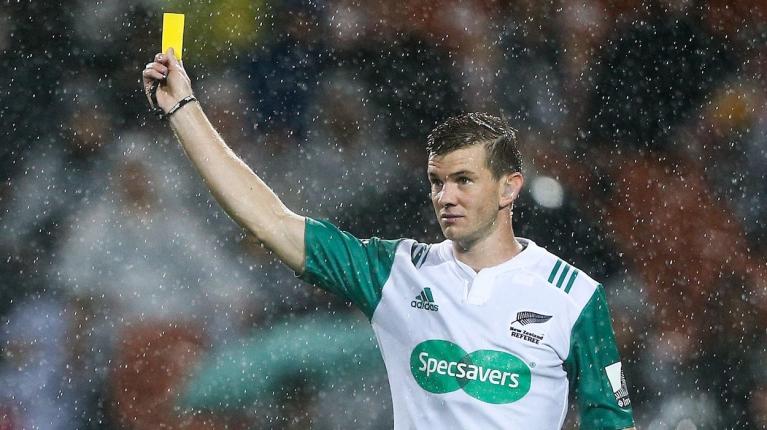Is it time to rethink yellow cards in rugby?

Quade Cooper thinks yellow cards are ruining rugby – but what are the alternatives? Jamie Wall has some ideas.
Does Quade Cooper have a point?
Despite the Reds first five’s blatant lack of hashtag use, he was obviously referring to the situation unfolding in front of him as he watched his team get reduced to 13 men against the Jaguares in Buenos Aires on Sunday morning.
Both Eto Nabuli and Kane Douglas were sent to the naughty chair in the space of a minute, allowing the home side to run in a couple of tries before tackle their way to a win that definitely won’t make many lists of great Super Rugby matches.
The Reds' yellow cards were just two of 13 dished out over the weekend, for everything from intentional knock-ons to a dangerous neck roll in a ruck. Is it time to try a different approach, since the deterrent effect of the yellow card clearly isn’t working? As always, we’re all about solutions here…
Introduce a report system: Not at all original, given that the NRL has had the method of ‘let’s worry about it later’ for ages. It isn’t much good for stuff like hands in the ruck, though given the number of dangerous tackle penalties these days, it would still have some merit.
Allow replacements: A way to penalise a team but not penalise the fans would be to allow the binned player to be replaced for the duration of his yellow, but have it count as an official substitution when they retake the field. It’d force the coaches to think pretty quickly about how they’re going to play out the situation and make the impact a lot more tactical than just playing shorthanded.
Advancing penalties: Right now the only way a penalty can get moved up the field is by mouthing off at the ref. Just expand that to anything that’s a professional foul or dangerous. For anything close to the line, just mark it straight out in front of the posts.
Fines: Hit them where it hurts with a blanket fine for yellow cards. Think of it as rent for their time in the sin bin.
Subject players to a sin bin interview explaining their actions: Even more excruciating for players than the halftime or the even more poorly thought out post-try interview. A public shaming would probably keep many from risking a yellow card.
The big fear about season 2017 was that games were going to be reduced to farcical states due to the supposed tough new interpretation of head high tackles. That hasn’t quite eventuated to the levels that the doom-merchants were predicting, but that’s probably got more to do with the fact that it’s actually quite difficult for refs to enforce consistently.
But Cooper’s point remains valid – if a little ironic. The only reason he was able to tweet about it was because he’d been suspended the week before after being red-carded for a dangerous tackle.
Latest Comments
Totally. Peak ‘Heineken Cup’ was a level above most test matches.
The 2011 RWC semi-finals and final. Compared with the Heineken Cup semi-finals and final that same year.
Go to commentsAll Blacks need BOTH Mo’unga and McKenzie at 2027 RWC.
Barrett will be 35 and his pace and skills are in decline and he rarely takes the ball into contact any more and has not for a few seasons, thus his tendency to kick first, pass second, run third. Barrett has this season in the All Blacks and then his time is up.
Hopefully Cotter starts Perofeta at 10 the rest of the Blues’ season and Perofeta steps up and finally reaches his potential as a 10.
Go to comments